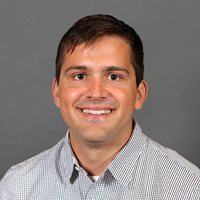David Guernsey

David Guernsey is a third-year medical student at New York Institute of Technology College of Osteopathic Medicine (NYIT-COM). Before medical school, David received his A.B. in biology and sociology from Harvard University. Following graduation, David traveled abroad on the Henry Russell Shaw Fellowship to study the cultural relevancy of zoos in contemporary society. David’s passion for public health led him to pursue a M.P.H. at the Mailman School of Public Health at Columbia University in the Department of Environmental Health Sciences. David’s course work focused on international impacts of environmental exposures on health, and it is what motivated him to pursue a career in medicine.
Currently, David is an Academic Medicine Scholar at NYIT-COM involved with teaching pre-clinical medical students as well as global health research in Mexico and Ghana. David plans to pursue a residency in either pediatrics or emergency medicine and to continue his international work abroad as his career develops. As a Kean Fellow, David will be traveling to Ghana to volunteer at HAWA Memorial Saviour Hospital in Osiem, Ghana. In addition, he will conduct an evaluation of the impact of the environmental design of the hospital on tropical disease transmission and quality of patient care.

Project:"Evaluation of the Impact of Environmental Design on Waterborne Tropical Disease Transmission in Rural Hospitals in Ghana"
June 14, 2015 - July 14, 2015
Ghana
What does the Kean Fellowship mean to you?
The Kean Fellowship is an opportunity to discover what tropical medicine is from a hands-on, personal experience. I have found, with any type of medicine, it is best studied when you are able to see and do what you are learning. For tropical medicine, this means immersing yourself in a tropical area and participating in the practice of medicine. The Kean Fellowship will give me the chance to experience a different country and learn more about not only another culture but also myself. I feel very honored to receive this fellowship. It provides me the opportunity to follow a passion and have an experience that would have been financially difficult to pursue.
What do you anticipate learning?
This will be my first time volunteering and researching in a developing country. An experience such as this will teach me about medicine in Ghana as well as Ghanaian culture. Ghana is a resource-poor country which requires Ghanaian physicians to rely heavily on clinical presentation and physical exam. By volunteering at HAWA Memorial Saviour Hospital, I will learn invaluable knowledge on how to practice medicine with the challenges they face on a daily basis. My clinical skills will grow, and this will directly impact how I practice medicine in the future. Culturally, this experience will teach my how to communicate and treat people who have limited language skills and different beliefs. In terms of research skills, I will see the unexpected barriers that can arise even for well-planned research protocols. This knowledge will help me design better studies that account for these barriers and execute more purposeful studies. It is hard to quantify exactly how much I will learn because from an experience like this you can learn a lifetime worth of insights. I plan to cherish this knowledge and apply what I learn to my career.
What interests you about tropical medicine and what problems are you interested in solving?
Tropical medicine, like public health, is a broad term that encompasses several different topics. Because of the broad nature, several of my interests (pediatrics, public health, environmental health) fall within this area of medicine. Moreover, tropical medicine primarily affects resource-poor or developing countries. These areas lack the funding or resources to deal with treatable problems such as typhoid, and small interventions can have a significant impact. This need is what also interests me in tropical medicine and what problems I hope to solve. Countries in these areas need not only more medical aid, research, and funding but also stronger infrastructure, such as better roads and access to improved water sources. I want to understand both the large and small interventions that can impact at national and local levels. A physician must look at patients as they fit within their family, community, and country. I plan to help support the family and community around a patient to improve overall health of the patient and his/her community.